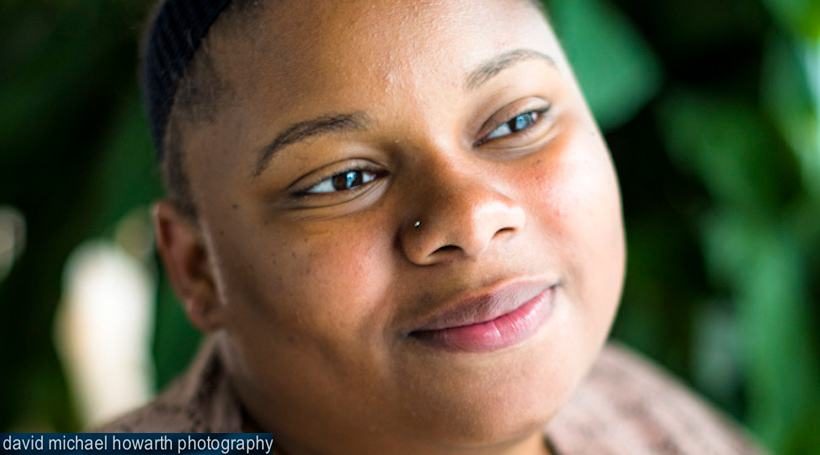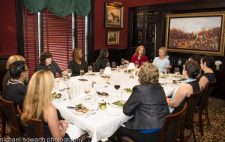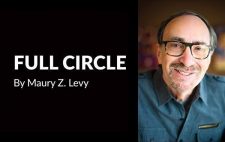In the fall of 2003, a news story sent a shock throughout South Jersey and the nation: a starving teen living in a foster home was found rummaging through his neighbor’s garbage cans in the middle of the night. Police soon discovered four brothers in the home, ranging in age from 9 to 19 and each weighing less than 45 pounds. The boys were malnourished, even though they lived in a comfortable home with two adoptive parents.
But there was another story that was never told. The boys had siblings who also lived in the home. For them, everything changed the night the police found their brothers. The world those other siblings once knew – and believed was normal and happy – fell apart. Keziah Jackson was 12 years old when that happened.
This is her story.
Growing up, Keziah Jackson says, her family didn’t have much money, but the children were always fed and there was plenty of love to go around. She says life with her parents, Raymond and Vanessa Jackson, was pleasant. The family, which included six adopted siblings, four biological children and a foster child, had a quiet, comfortable existence in Collingswood. There were weekly Sunday dinners at grandma’s house. And the whole family was very active in their church.
But at 3 am one October night, police found her adopted brother Bruce disoriented and shoeless, rummaging through a neighbor’s garbage cans for food. At 19, Bruce weighed about 45 pounds and was just 4 feet tall.
Officers went to the Jackson home, where they found Keziah’s other adoptive brothers – Michael, age 9 and 23 pounds; Tyrone, age 10 and 28 pounds; and Keith, age 14 and 40 pounds. It was clear the boys were malnourished – they were reportedly eating uncooked pancake batter and wallboard just to survive. All the children, including Keziah, were immediately removed from what was deemed an extremely abusive home.
“When I was born, my dad was locked up and my mom was a crackhead,” says Keziah, now 25. “I was taken from my biological mother at birth and was 3 weeks old when I was adopted by Raymond and Vanessa. I never knew I was adopted. They were the only family I knew, and I loved them. When they went down for neglect and child abuse, me and my brothers and sisters were removed. I lost my family and found out they weren’t even my real parents, all in one day.”
When Keziah talks about the night everything changed, she’s all business, as though she’s been asked to recount the events many, many times.
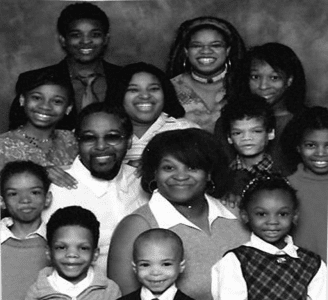

The Jackson family, shortly before their case made national headlines
“I remember my sister woke me up and said, ‘Bruce is missing, we have to find him,’” she says.
“We looked everywhere – in all the closets, everywhere we used to hide for hide-n-seek. We started asking neighbors, and finally someone told us he was at the hospital. People showed up at my house and started asking me questions. ‘Do you eat enough? Do you wash every day? Has anybody touched you?’ I didn’t even know what they were referring to. I was like, ‘Eww, no.’”
As she remembers, though, her voice begins to waver.
“We rode in an ambulance to the hospital, and my dad was doing a lot of praying,” she says. “I remember he couldn’t stop crying. He said, ‘Promise me you’ll always remember I love you. Everything is going to be OK.’”
By this point in recounting the story, Keziah is bawling.
“That was the last time I ever saw my dad. It was the last time I saw my parents together,” she says. “This lady put us in a car, and I started crying and couldn’t stop. I was praying it was a bad dream, it was all a joke, that we were just going to get dropped off at home. But she drove past our house and didn’t stop, and I knew it was real.”
The four boys underwent a long-term hospital stay. Keziah and her then-5-year-old adoptive sister entered the foster care system. Raymond and Vanessa, who insisted the boys’ condition was the result of pre-existing medical problems, were indicted by a grand jury on eight counts of aggravated assault and 20 counts of endangerment. Raymond died of a stroke before the case went to trial. Vanessa eventually pled guilty and was sentenced to seven years in prison.
The case was a national sensation, and Keziah says the constant media coverage contributed to her anger and depression. It got worse, she says, when she and her sister began moving from foster home to foster home.
“I guess people didn’t realize how big the case was going to get, and the first few foster families couldn’t really handle it,” she says.
“It brought me to a bad place. I was depressed. I thought about killing myself. It was really overwhelming. That same year there was another family who ended up on the national news. They had foster kids and this beautiful home, but they kept all these kids in cages in the basement and the barn. Everybody was taking that story and mixing it up with ours.”
Keziah was placed in five different foster homes that year. Shortly after she turned 13, her brothers were released from the hospital, and all six siblings were placed with the same family. Keziah says she was a confrontational teen, especially when it came to defending her family against rumors and misinformation.
“I was getting in trouble in school a lot,” she says. “It started with kids giving me money or giving me extra lunches. I thought they were being nice to me. Eventually a girl said, ‘Do you know why people are doing that? Everyone knows about your family.’ My way of dealing with it was just to fight everybody.”
Keziah thinks her behavioral issues were why her foster family offered to adopt all the siblings – except for her.
“I opened a letter I found addressed to my caseworker,” she says. “My foster mother was telling her why she wanted me removed from the home. When I found out my brothers and my sister were being adopted but not me, that’s when it really hit me hard.”
Keziah left and moved to Burlington Township to live with a woman she still calls Miss Davis. That foster home stuck. Miss Davis, she says, was the first person to offer her something no other foster parents, however well-meaning, had: family.
“Our relationship was not perfect,” Keziah says. “There was times I’d gotten mad at her and said stuff like, ‘You can’t tell me what to do anyway, you’re not my mom. You’re just temporary.’ I’m sure there were times I made her cry, and she used to make me cry. But she cared. She just cared. When I got older, I’d go and live somewhere else for a couple months, but I always ended up back with Miss Davis. It was love. Love is what kept bringing me back.”
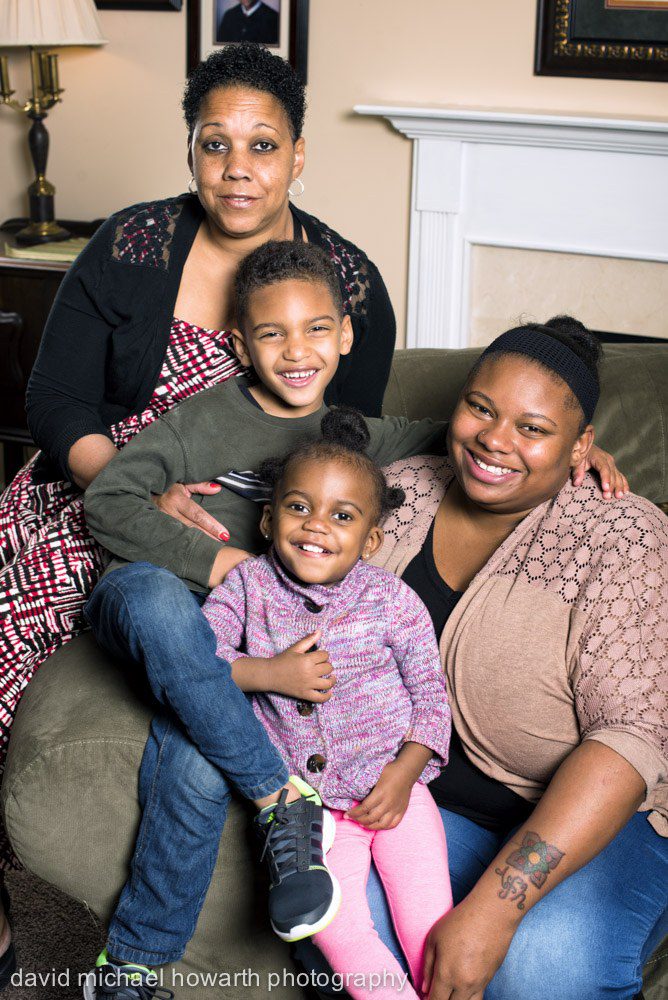

Keziah (right) and her children with Miss Davis
When Keziah turned 18, she was able to access her adoption records. She reconnected with her biological sister, Diva, and with her mother. Though their biological mother still struggles with drug addiction, Keziah and Diva formed a close bond.
Though Keziah had set about rebuilding a family, her struggles weren’t over. She was 19 when she got pregnant with her son, and she says she was dangerously close to continuing the cycle of bad parenting she’d experienced.
“They tried to put me in an independent pregnancy home,” she says. “It was basically a group home for pregnant girls. It was terrible. When you pulled up to the place, it looked like an abandoned building.”
Instead, Keziah couch-hopped, living with friends until she gave birth to her son. What came next was a blur of parties and irresponsibility. When her son was almost 2, Keziah got a wake-up call.
“A former girlfriend of mine called [The Department of Children and Families], and I almost had my son taken from me. That was my wake-up call. Some people never get their kids back. I didn’t want that for him, and I didn’t want that for me. I knew I needed to provide him a better life.”
Keziah called Davis and got herself back on her feet. Today she has two children, her son, now 5, and her daughter, 2. Both call Davis “grandmom.” Keziah lives and works in Philadelphia, and is a year away from a teaching degree.
A few years ago, she wrote a letter to her adoptive mother Vanessa, who was then nearing the end of her prison sentence. The two have become close again.
“I was an adult, and I had a decision to make about whether I was going to continue to talk to her,” Keziah says.
“My parents should have asked for help. I don’t think what was wrong with the boys was their fault, but they were wrong to not ask for help, to not keep going back to doctors until the boys got better. There are so many things I wish she would have done to prevent it all, but I forgave her. My kids call her ‘grandmom’ too.”
Keziah also recently reconnected with her adopted siblings and met her biological father and his other children, expanding her family even more.
“I tell people I have three families,” she says. “My biological family, my adopted family and the family that raised me.”


